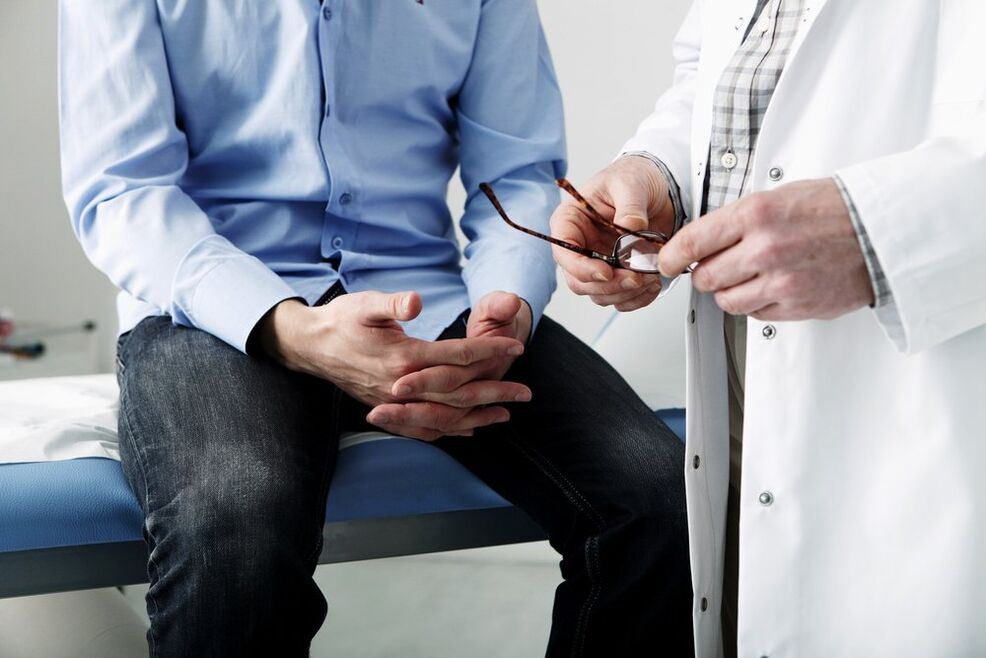Prostatitis is an inflammation of the prostate.
The prostate is also a prostate, only men. A small organ performs multiple functions: partly responsible for ejaculation, partly for urination, partly to prevent infection. Therefore, when the current state is sick, the situation is not limited to pain. The problem begins with the entire genital system.
Prostatitis is contrary to the general opinion, not age-related illness.
In older men, the increase in the prostate and its cancer is more common, and prostatitis can be ill at any age.
How it happens
Like most inflammatory diseases, prostatitis is acute and chronic.
- Sharp - This starts suddenly and then passes or becomes chronic. Usually, this is an infection in the development of events that is weird.
- Chronic - manifested by unpleasant symptoms and then calm down. This can last for years. Unfortunately, this is the second option, and the reason is not only contagious.
What are the symptoms of prostatitis

The signs of prostatitis depend on the type of disease. Patients will rarely help these details, but the doctor needs a diagnosis to diagnose. So be sure to tell you at the reception: When the symptoms appear, when they subside, you think it is the cause of the disease.
Therefore, the main symptoms of prostatitis:
- pain. The prostate is located below the bladder, between the path through which urine passes and the rectum. Therefore, due to inflammation, it will immediately get injured in multiple places: around the penis, around the scrotum, around the anus, and even the lower abdomen or back. Pain occurs after ejaculation or sex.
- Difficulty in urination. There is pain and burning, and you have to run to the toilet frequently and get up at night. Starting and completing the process can be difficult and blood may even appear in the urine.
- Discharged from the urethra. Thick liquid you've never noticed before.
- Effectiveness issues.
If any symptoms last for three months, it is already chronic prostatitis. And, if all these signs are obvious and cannot be missed in acute prostatitis, then chronic conditions can only show erectile dysfunction.
When to see a doctor
Once you notice symptoms of prostatitis. It is necessary to conduct tests and conduct research to correctly diagnose and prescribe treatment. Some tests are unpleasant, but certainly worse than prostatitis.
If you have urination, you can't even visit the doctor for a minute - you can't go to the bathroom. This is a dangerous condition where fluid continues to accumulate in the bladder. It is necessary to move to the hospital in an emergency or call an ambulance.
Where prostatitis comes from
If prostatitis is infectious, the cause is microorganisms that penetrate the urethra and climb to the prostate or try to get there from other infection focus. Often, there is no basis for infection, so we must consider preventing sexually transmitted diseases.
In all other cases, it is impossible to say exactly why the prostate is inflamed. Due to the influence of sedentary work and lack of exercise and bad habits, one can only assume some stagnation.
If you have a prostate, you may get sick.
But there are some risk factors that warn health at risk:
- Ages range from 30 to 50 years old.
- Any infection in the organs of the pelvis and abdominal cavity (e. g. , in the intestine).
- Past acute prostatitis.
- Any operation and intervention in the genital system.
- Pelvic injury.
How to treat prostatitis
It all depends on why it appears. If it is to be blamed on bacteria, they will be destroyed by antibiotics. Usually everything is limited to this. Few complications require prostate surgery and surgical treatment.
If not in microorganisms, they will try special products that use painkillers and special products to relieve muscle relaxation and help solve urination problems. They use body therapy, warm bathrooms, physical education – everything will be easier.
How to not accept prostatitis

Unfortunately, there is no 100% reliable way to prevent prostatitis, especially when it is about chronic diseases that are not caused by infection. Dietary supplements, folk therapies or breakthrough methods have no reliable data to protect you. We can’t rely on irritating food, drink enough water to provide normal urination and prevent infection:
- Follow hygiene.
- Use condom prevention IPP.
- Treat any infectious disease, especially the urinary tract.
- When unpleasant symptoms occur, see a doctor immediately to start treatment as early as possible instead of starting the disease.























